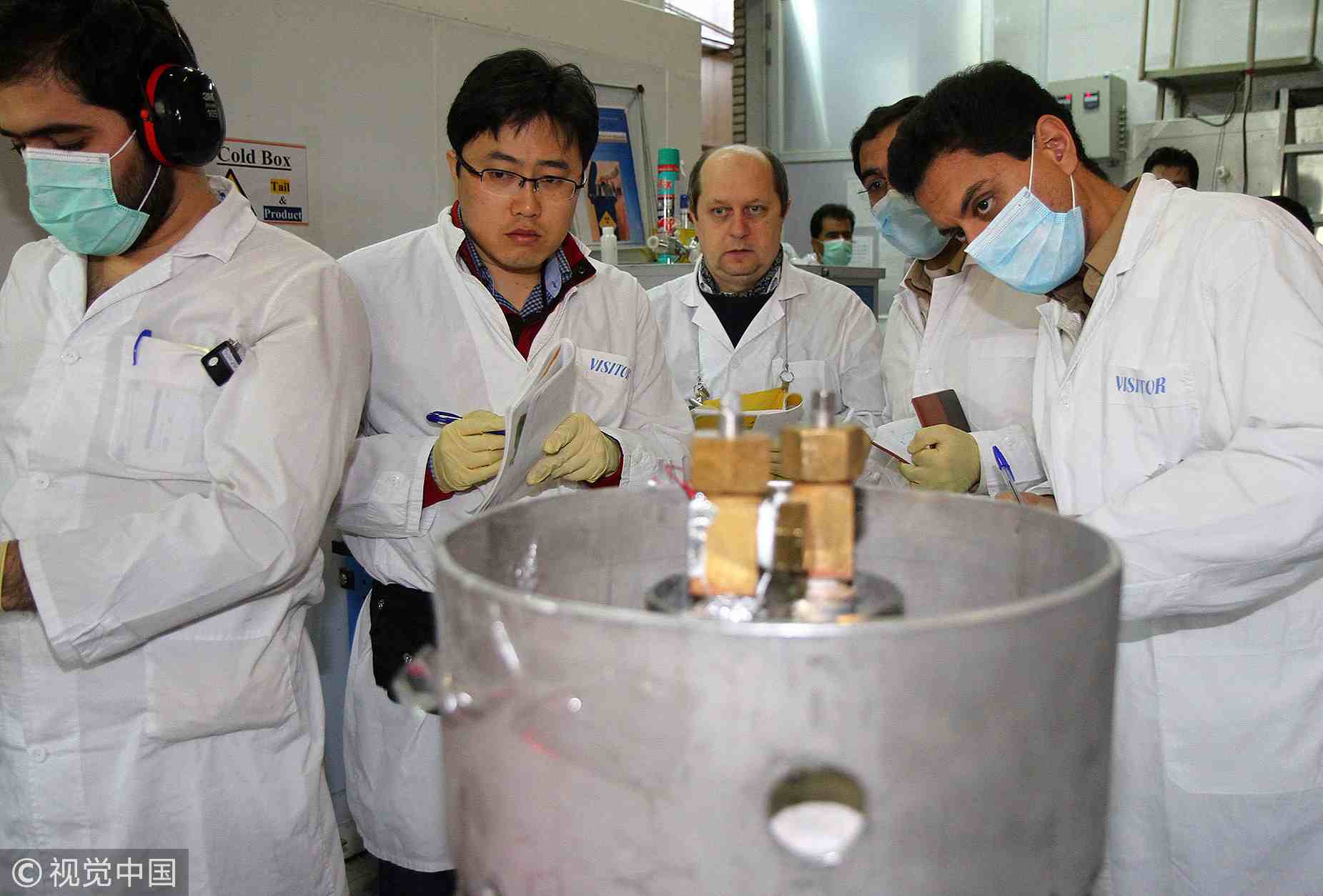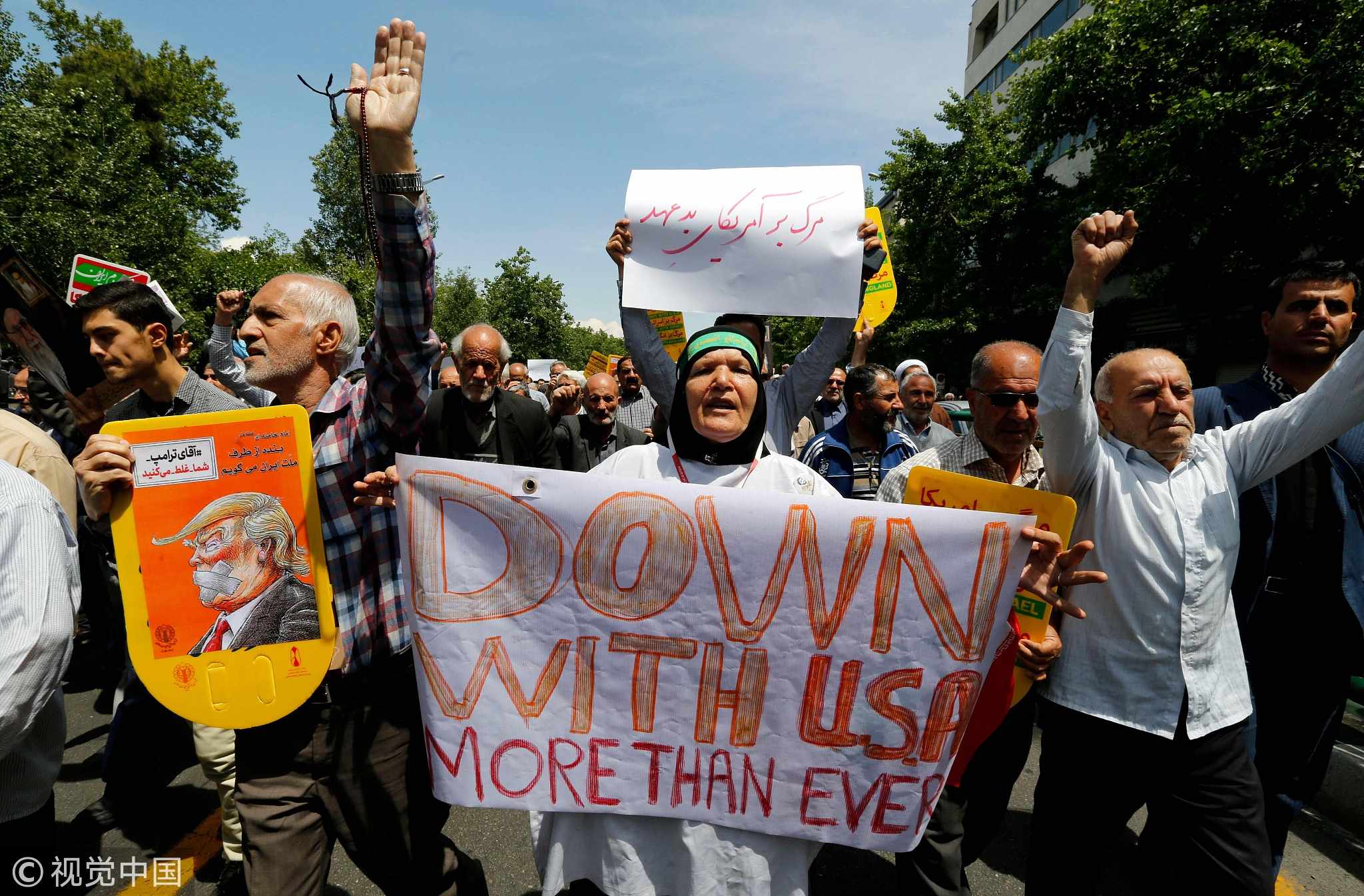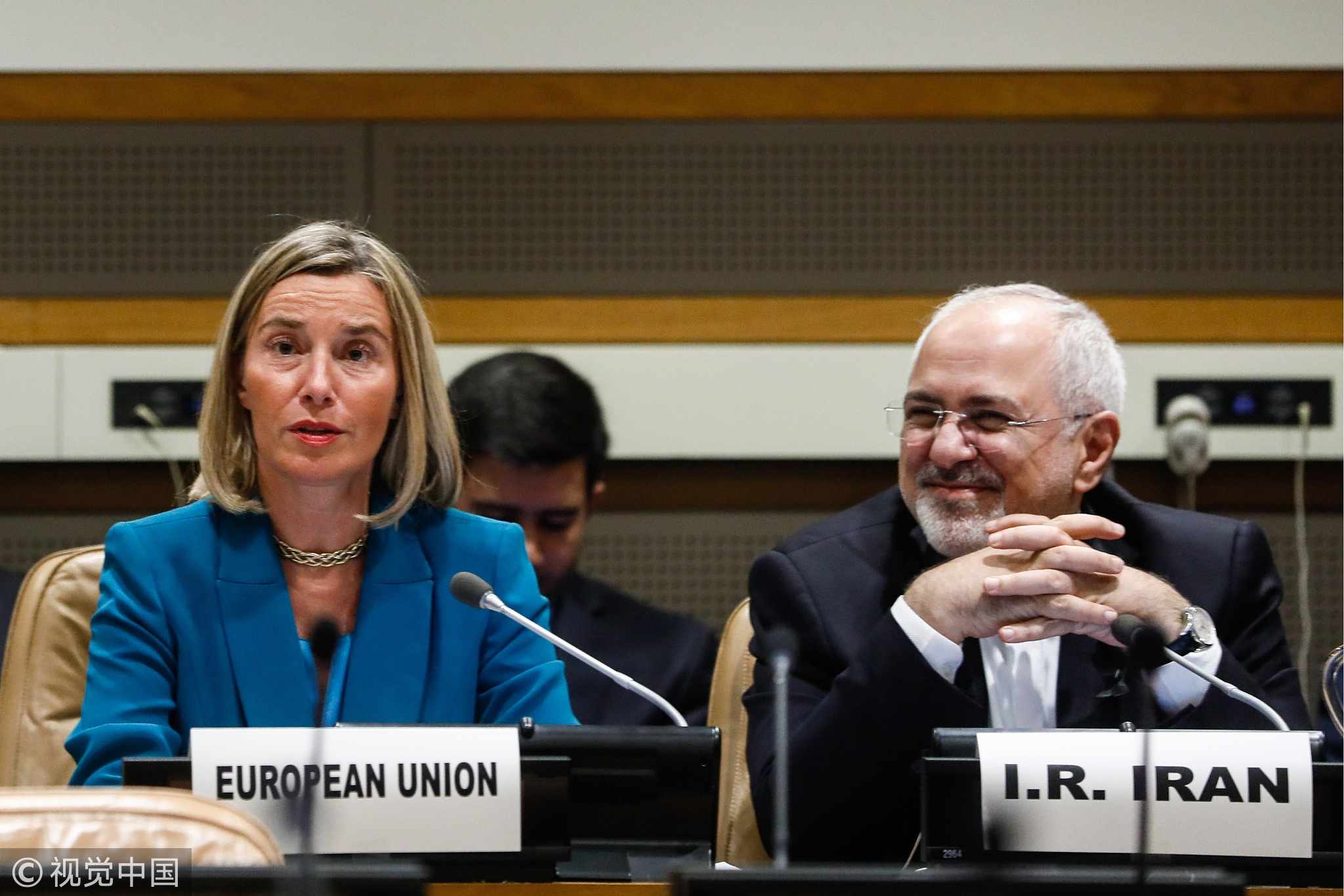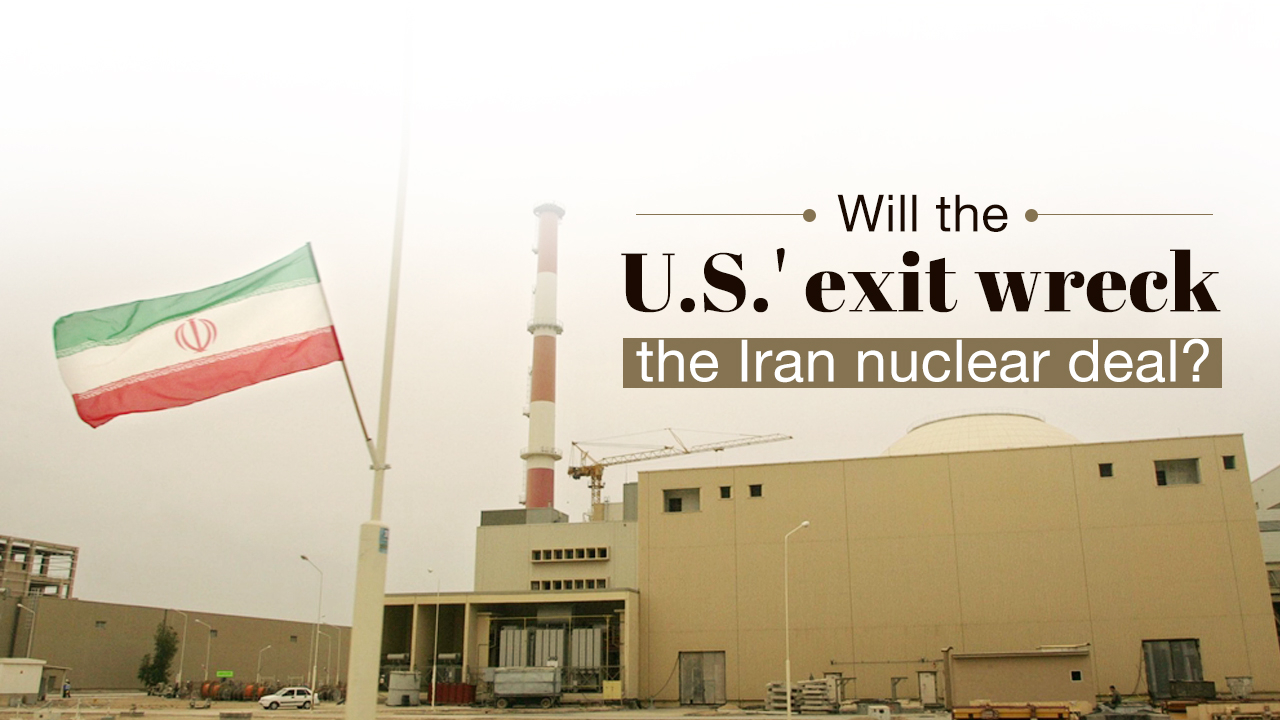The 2015 Iran nuclear deal, known as the Joint Comprehensive Plan of Action (JCPOA), was considered "the most significant nonproliferation achievement since South Africa, Belarus, Kazakhstan and Ukraine decided to give up their nuclear weapons in the 1990s," according to Oliver Meier, deputy head of International Security Division at the German Institute for International and Security Affairs.
However, the deal, which was supposed to last for over a decade, has run into a serious obstacle. One of the signatories, the United States, pulled out in May this year then reinstated sanctions on Iran, triggering doubts about its future.
The deal at a glance
Iran promised to significantly limit its nuclear activities by adopting a series of measures, including eliminating its stockpile of medium-enriched uranium, reducing its stockpile of low-enriched uranium by 98 percent, cutting the number of its centrifuges from 20,000 units to around 5,000, and allowing international inspectors in.

In this file photo taken on January 20, 2014 unidentified International Atomic Energy Agency (IAEA) inspectors (2nd-3rd L) and Iranian technicians disconnect the connections between the twin cascades for 20 percent uranium production at nuclear power plant of Natanz, some 300 kilometers south of Tehran as Iran halted production of 20 percent enriched uranium, marking the coming into force of the JCPOA. /VCG Photo
In this file photo taken on January 20, 2014 unidentified International Atomic Energy Agency (IAEA) inspectors (2nd-3rd L) and Iranian technicians disconnect the connections between the twin cascades for 20 percent uranium production at nuclear power plant of Natanz, some 300 kilometers south of Tehran as Iran halted production of 20 percent enriched uranium, marking the coming into force of the JCPOA. /VCG Photo
By adhering to the deal, Iran will get "the comprehensive lifting of all UN Security Council sanctions as well as multilateral and national sanctions related to [the country's] nuclear program, including steps on access in areas of trade, technology, finance, and energy."
Director General of the International Atomic Energy Agency (IAEA) Yukiya Amano confirmed in November that Iran had been continuously complying with all its nuclear-related commitments.
Deal in danger
While the world praised the breakthrough made in the Iranian nuclear issue, certain voices in the U.S. have been complaining about it, and this came to a head under the Donald Trump presidency. Trump himself slammed the agreement as "insane" and repeatedly threatened to withdraw from it before finally doing so in May this year.
The U.S. also immediately slapped sanctions on Iran, which took effect in August and November.
Under the sanctions, firms and other entities are forbidden to do business with Iran in the auto, energy, shipbuilding and banking sectors, among others.
France's Total and Denmarks' Maersk were among the industry leaders that halted business ties with Iran shortly after the U.S. sanctions were re-imposed.

U.S. President Donald Trump posted a meme on his Twitter account with a caption stylized "Sanctions are coming November 5" which is styled on the famous "Winter is coming" phrase from the TV series Game of Thrones. Ghasem Soleimany, a major general in the Iranian Revolutionary Guard Corps, the leader of Iran's elite Quds Force, responded to it on Instagram. Soleimany is shown in front of a background styled like HBO's promotional posters for the popular TV show, with a caption reading "I will stand against you," November 4, 2018. /VCG Photo
U.S. President Donald Trump posted a meme on his Twitter account with a caption stylized "Sanctions are coming November 5" which is styled on the famous "Winter is coming" phrase from the TV series Game of Thrones. Ghasem Soleimany, a major general in the Iranian Revolutionary Guard Corps, the leader of Iran's elite Quds Force, responded to it on Instagram. Soleimany is shown in front of a background styled like HBO's promotional posters for the popular TV show, with a caption reading "I will stand against you," November 4, 2018. /VCG Photo
The punitive moves have placed considerable strain on Iran's economy and sent its currency plummeting in value.
Iranian leadership has frequently criticized the U.S., with Iranian President Hassan Rouhani recently labeling the U.S.' actions as "economic terrorism."
Iran has also repeatedly threatened to restart its nuclear program on an "industrial scale."
Possible futures for the deal
The experts CGTN Digital interviewed seem to be split on whether Iran will withdraw from the deal itself.
Wang Jin, a research fellow at the Institute of Middle East Studies at China's Northwest University, prefers to view Iran as a pragmatic country.
"It is still early to judge whether Iran will withdraw from the nuclear deal," the Chinese researcher said. "Iran needs to face its reality, its economic situation and social hardship."
However, in the eyes of Stephen Zunes, a professor of politics and international studies at the University of San Francisco, Washington's withdrawal is now considered a victory for Iranian hardliners, who opposed the agreement in the first place, arguing that the United States could not be trusted to lift the sanctions as promised.

Iranians hold anti-U.S. slogans during a demonstration after Friday prayer in Tehran, Iran, May 11, 2018. /VCG Photo
Iranians hold anti-U.S. slogans during a demonstration after Friday prayer in Tehran, Iran, May 11, 2018. /VCG Photo
"That, in the end, is exactly what happened, so it is possible Iran could indeed withdraw from the deal as well," said the American academic.
The remaining deal signatories, particularly those from the European Union (EU), have been playing a key role in salvaging the agreement.
According to the latest report by a Germany's Wirtschaftswoche, a weekly business news magazine, Germany and France have decided to host the EU's promised trade mechanism with the aim of facilitating trade with Iran in the face of U.S. sanctions.
The report says this will be settled in France and will be chaired by the German side.
Nine countries, including Italy, Spain and Austria, are interested in joining the Special Purpose Vehicle (SPV).
It is reported that the mechanism will be limited to trade in humanitarian goods such as food and medicines. However, Iran's Foreign Minister Zarif has stressed that the SPV will also cover oil sales.

Federica Mogherini (L), the EU's High Representative for Foreign Affairs and Security Policy, and Iran's Foreign Minister Mohammad Javad Zarif attend a ministerial meeting of the P5+1 countries (Russia, China, United Kingdom, France and Germany) and Iran held on the sidelines of the 73rd session of the UN General Assembly at the United Nations headquarters to discuss implementation of the JCPoA, September 25, 2018. /VCG Photo
Federica Mogherini (L), the EU's High Representative for Foreign Affairs and Security Policy, and Iran's Foreign Minister Mohammad Javad Zarif attend a ministerial meeting of the P5+1 countries (Russia, China, United Kingdom, France and Germany) and Iran held on the sidelines of the 73rd session of the UN General Assembly at the United Nations headquarters to discuss implementation of the JCPoA, September 25, 2018. /VCG Photo
However, there are still worries that those efforts are not sustainable.
German expert Oliver Meier put it this way: "At the end of the day, every company has to weigh the risks and gains of staying engaged with Iran."
Does this mean Iran take the third path of surrendering to U.S. pressure and start the renegotiations that Trump has been asking for?
Dr. Seyyed Mohammad Marandi, professor of North American Studies at the University of Tehran thinks it's very unlikely.
"I do not see any possibility that the Iranians will renegotiate the deal, because appeasement does not work."
(Top image designed by Jia Jieqiong)






